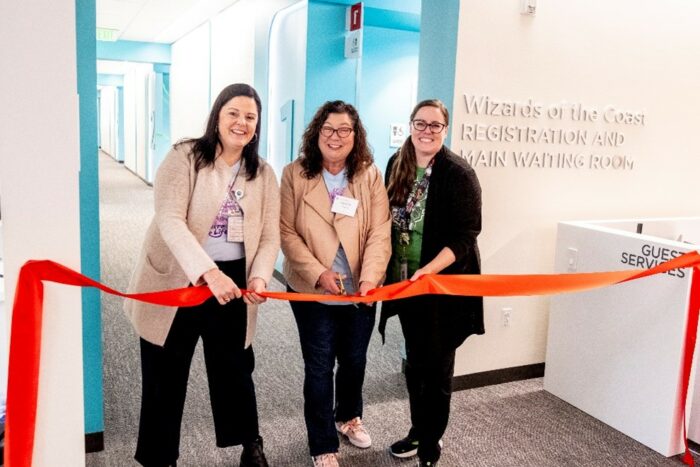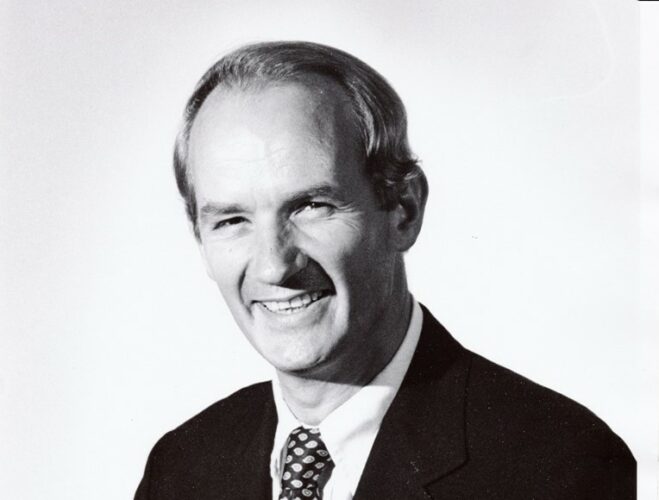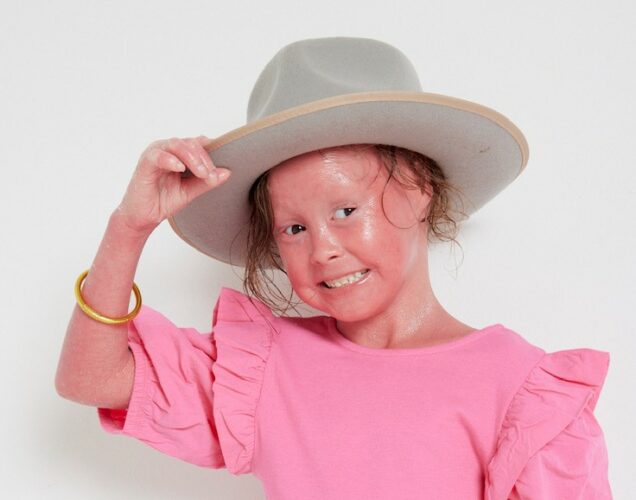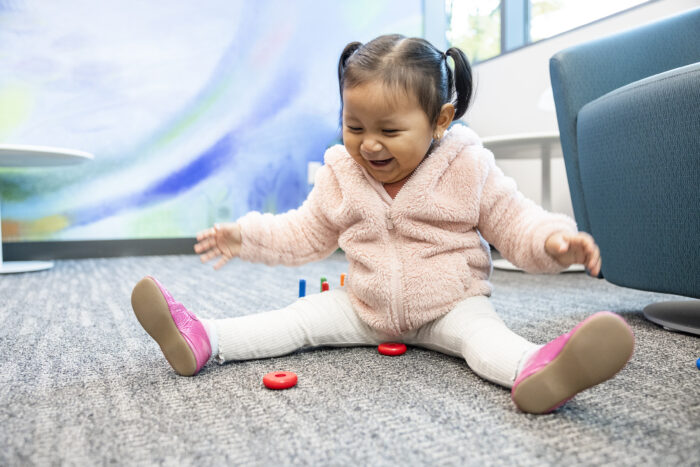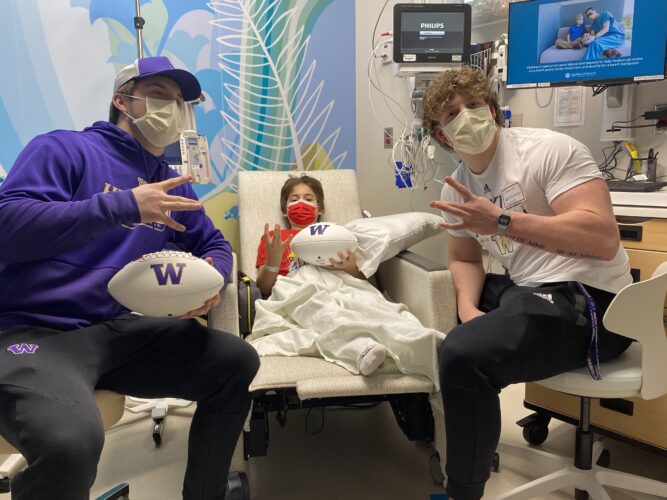On Saturday, October 28, Seattle Children’s honored Wizards of the Coast for their $5M commitment to Seattle Children’s Magnuson by naming the Autism Center registration area and main waiting room. The celebration included a ribbon-cutting and tours of Magnuson, which opened last year and was fully funded by philanthropy.
In honor of the late Dr. Peter Mansfield, former Seattle Children’s Chief of Surgery, his wife, Jackie Mansfield, has established a fund directly benefitting the Invent at Seattle Children’s Postdoctoral Scholars Program (Invent@SC), which is an investment in training for early career scientists historically underrepresented in or excluded from biotech in the development of therapeutics for childhood […]
As a part of the festivities leading up to the MLB All-Star game, hosted in Seattle on July 11, two Seattle Children’s patients, Isaac Williams and Tiago Viernes, got once-in-a-lifetime experiences thanks to MLB and MLB All-Star partners Dairy Queen (DQ) and Children’s Miracle Network Hospitals (CMN). Each year, MLB invites a guest that has […]
In 2022, high school student Rakshith “Rocky” Srinivasan was working on research on how amino acids help with muscle mobility. He was mentored by Dr. Burt Yaszay, the Chief of the division of Orthopedics and Sports Medicine at Seattle Children’s, who helped Rocky understand the science behind muscle mobility. In these sessions, Dr. Yaszay discussed his […]
Most people hope any trip to the emergency room will be a short stay, but many emergency rooms and hospitals in Washington, including Seattle Children’s, are where young people in crisis become stuck when they are unable to get connected to the kind of support they need. Last summer and fall, Seattle Children’s convened with […]
Angie Foy and her daughter Harper of Edmonds are excited to give back to Seattle Children’s with a fundraiser called “Gift a Brave Gown to a Brave Kid.” Harper was born with a rare genetic disorder called harlequin ichthyosis, which causes the skin to form in hard diamond-shaped plaques on the body. The plaques become […]
There is growing concern about social media’s effects on mental health, especially for kids. In January, Seattle Public Schools filed a lawsuit against Facebook, Instagram, TikTok, Snapchat and YouTube for their roles in “creating a youth mental health crisis.” In February, the Senate Judiciary Committee held a hearing about the issue, with some senators demanding […]
Autism Acceptance Month is a time to foster inclusion of the autism community. This goes beyond simply promoting education about the differences and abilities of people with autism— it is a commitment to understanding, respecting, and celebrating those differences and abilities from across the diverse range of the autism spectrum. Seattle Children’s Autism Center holds […]
Anxiety and depression are two of the most common mental health conditions seen and treated at Seattle Children’s. Although sometimes confused, they are different classes of disorders. Some of the confusion stems from an overlap in symptoms and in fact, people often experience both at the same time. Dr. Kalina Babeva and Dr. Sonia Venkatraman, […]
Seattle Children’s patients and families were surprised when some exciting visitors stopped by from University of Washington (UW) Athletics. The 17 women on the UW Softball team each brought a pair of white cleats to be designed by a patient, and the team will wear their custom cleats during the televised Cal series on the […]

